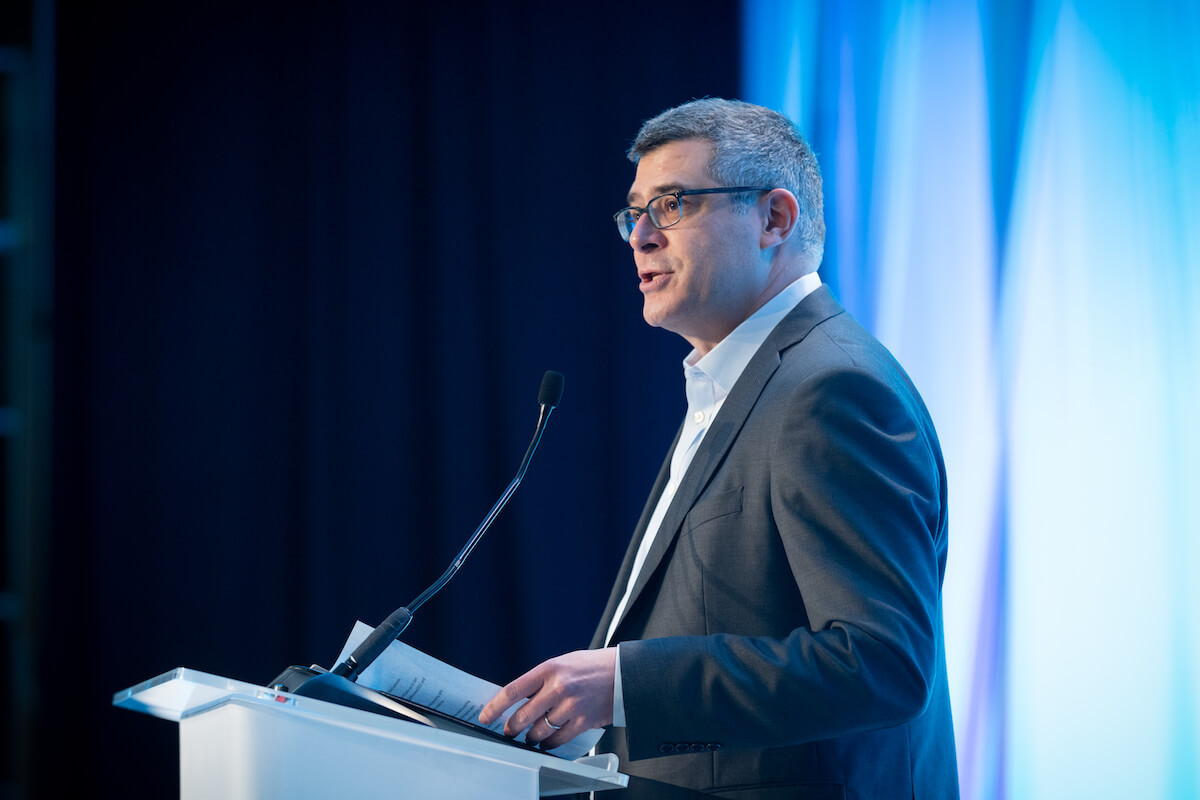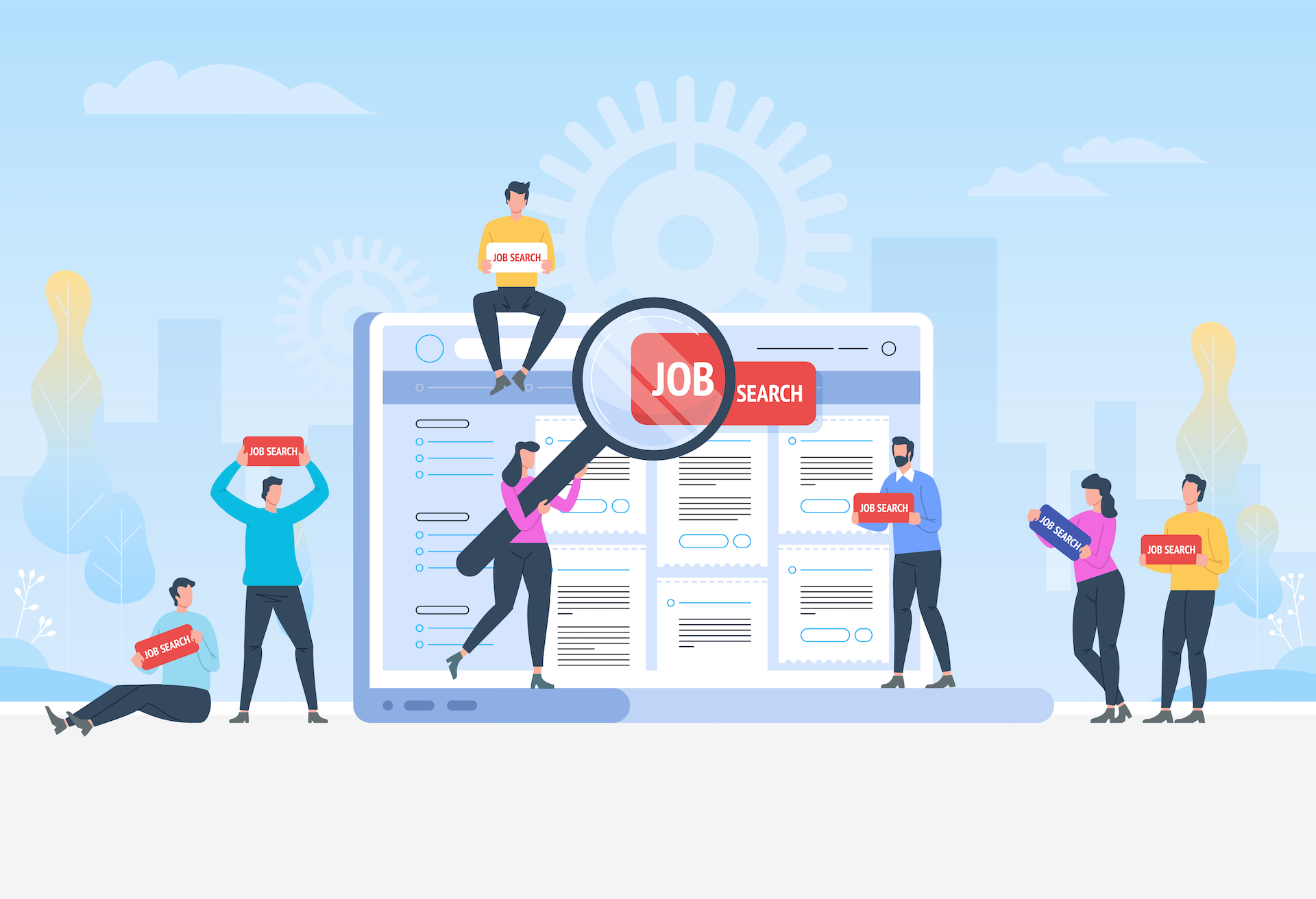Greetings, ImpactAlpha readers!
Give the goodness of ImpactAlpha this holiday season. You are an Agent of Impact, driving change wherever you go. But your mission is not yet complete. Neither is your holiday gift list. Give the gift of ImpactAlpha… to partners still skeptical about the return on impact; to classmates and colleagues who need to get up to speed; to your parents, so they’ll know what exactly it is you do – and why. Our subscriber-only gift rate starts as low as $219 each – 45% off our regular annual price. Give the gift of impact.
Ring out the old and ring in some New Year’s impact alpha. ImpactAlpha has assembled the strongest signals, biggest deals and most provocative takeaways of the year to get you off to a strong start in 2019. Join us for Agents of Impact Call No. 6, Thursday, Dec. 20th at 9:00 am PT/ 12:00 pm ET/ 5:00 pm GMT. RSVP today.
Featured: The Brief’s Big 7
1. The hot investment thesis for market-beating funds: ‘impact alpha.’ The thesis: impact can be a driver, not a drag, on returns. “Impact alpha” describes the advantages that come from creating social and environmental value. More than a dozen private fund managers shared details of nearly 30 deals with impact consulting firm Tideline to demonstrate how impact strategies drive financial returns. The $10 million Impact America Fund, led by Kesha Cash, found impact alpha in its mission-alignment with Oakland-based Mayvenn, which has built a distribution network of predominantly African-American hair stylists. Impact America invested early, helped bring in major venture firms, and got a slice of Mayvenn’s later rounds, including the recent $23 million Series B round led by Essence Ventures. The alpha in impact.
- Ten drivers of impact alpha. “Impact is not a tradeoff, but an advantage,” says SJF Ventures’ Dave Kirkpatrick, co-head of Impact Capital Managers, the network of impact alpha fund managers that contributed to “The Alpha in Impact” report. Impact alpha investors can tap new networks to build proprietary dealflow, help portfolio companies unlock hidden value and identify long-term risks. Collect the whole set.
2. Counting up reasons for climate optimism (podcast). Time to shine, fellow optimists. Our Returns on Investment podcast on this week’s COP24 climate talks in Poland tended toward the gloomy. Carbon is up. Climate finance is not, or at least not enough. But while optimism may or may not be self-fulfilling, pessimism surely is. So we’re putting out a call for #ReasonsForClimateOptimism. Journalist Lou del Bello, on the ground in Katowice, nominates ‘private capital.’ “While pessimism still dominates the political conversation, businesses are asserting themselves as a much needed, optimistic voice of reason,” she writes. Root Capital’s Willy Foote suggests ‘entrepreneurs.’ Climate adaptation means “extreme, multi-stakeholder collaboration,” he says. “It is the greatest entrepreneurial challenge of our time.” How about ‘divide and conquer’? “In every sector there are leaders and laggards,” says ImpactAlpha’s David Bank, “The question is: Will leaders be rewarded for their leadership, and the laggards punished?” Listen to the podcast.
- Share your #ReasonsForClimateOptimism on ImpactAlpha’s subscriber-only Slack channel, on LinkedIn, or by sending a note to [email protected] (or simply respond to this email).
3. ‘The devil’s in the details’ in new U.S. commitments to Opportunity Zones. An executive order by President Trump creates a White House council to coordinate federal Opportunity Zone support, including grant funding, loan guarantees, water infrastructure, rural broadband, gang prevention and mentoring. Agents of impact react.
- High potential. A ranking from Smart Growth America’s LOCUS program found that only two percent of Opportunity Zones are ready to deliver positive social and environmental impact. The Opportunity Zones with the highest “smart growth potential”: downtown Oakland, downtown Seattle, downtown Portland, downtown Newark, and Seattle’s International district.
- 50% gross income test. Develop’s Steve Glickman tells ImpactAlpha that Treasury confirmed, during a meeting Thursday with the Senate Finance Committee, that additional guidance covering OZ fund operations will be out in Jan. Treasury reportedly agreed the upcoming rules would clarify that an OZ business is “not required to generate 50 percent of its sales revenue from within the underserved community.”
- One person’s opportunity… Different and competing views of investing can all be right, tweeted Nonprofit Finance Fund’s Antony Bugg-Levine. Opportunity Zones, he said, are “both a way for already rich people to get tax breaks they don’t need and potentially precious capital for under-capitalized communities.”
4. Agent of impact: Aavishkaar’s Vineet Rai. It took Vineet Rai more than five years to raise Rs 50 million (about $700,000) for his first fund. Since then, the founder of the Aavishkaar-Intellecap Group has raised hundreds of millions of dollars across south and southeast Asia and Africa. The goal: to build businesses that deliver employment, health, energy and financial inclusion for “the other three billion” low- to middle-income customers in emerging markets. That was the theme of the group’s 10th Sankalp Global Summit this week, which convened 800 impact entrepreneurs, investors and others in Mumbai. Aavishkaar’s eighth fund is aiming for $300 million to invest in Indonesia, Vietnam and Myanmar. An Africa-focused fund is looking to raise $150 million. The Bharat fund, Aavishkaar’s largest India-focused fund, is about halfway to its $200 million goal. “We are building an ecosystem for impact investing,” Rai said last year. “That means that you need to invest capital to bring in high quality of senior leadership. You need to bring in technology. You have to invest in incubating innovations that can be disruptive. All of this requires capital.” Follow ImpactAlpha on Instagram.
- Overheard at the Sankalp Global Summit. If India can tackle the social issues of urbanization, said Amitabh Kant of the National Institution for Transforming India, at this week’s Sankalp Global Summit, “then we are finding solutions to the seven billion people of the world.” More from Sankalp.
- Agents of Impact weekly roundup: Follow the talent with career moves, job openings, events and opportunities.
5. Deals of the week. Drink from the deal firehose all week long on ImpactAlpha.com. A few that stood out:
- Private equity watch. KKR makes first “global impact” investment in Singapore’s Barghest Building Performance.
- Personal finance. Accion Venture Lab exits Aye finance… BlueOrchard launched a SDG bond fund for European investors… Ethical bank Good Money raises $30 million.
- Inclusive fintech. Cross River secures $100 million to help fintech firms tap mainstream banking… CUNA Mutual Group acquires digital small-business lender Mirador.
- Resilience and adaptation finance. World’s poorest countries to get dedicated impact fund… Incofin helps launch climate resilience insurance for Nicaragua’s farmers… Eco.business Fund scores $60 million in debt for Latin America conservation.
6. Impact fintechs need private debt, not just private equity, to fuel their social mission. Private equity gets the glory, but to scale impact, it’s private debt that can do the heavy lifting. Big-name investors are flocking to inclusive financial technology (see, “Investors are backing fintech ventures to crack a huge market: the global poor”) and fintech companies serving underbanked populations in developing markets are ready to scale. But impact fintech ventures need more than private equity, writes Microvest’s John Beckham in a guest post on ImpactAlpha. They need more private debt to provide liquidity for loan-making. “The more impact investors embrace private debt as a catalyst for scale, the more fintech companies will succeed in their mission to promote financial inclusion across developing and frontier markets.” The right capital for the job.
7. Making room for employees, customers and community alongside investors. At produce distributor Organically Grown Co., a “perpetual purpose-driven trust” helps preserve the firm’s mission to promote a sustainable and healthy food system. The investor-backed permanent trust, the single shareholder of the company, is governed by the company’s stakeholders, including investors, workers, growers, customers and community allies, who will share in the economic upside of the firm. In a guest post on ImpactAlpha, Candide Group’s Aner Ben-Ami explained the structure, which was financed with debt from RSF Social Finance and preferred equity from Candide, on behalf of The Libra Foundation and Purpose Capital. Preferred equity investors get the first dividends; excess profits are divided among five stakeholder groups. It makes sense.
— December 14, 2018.











